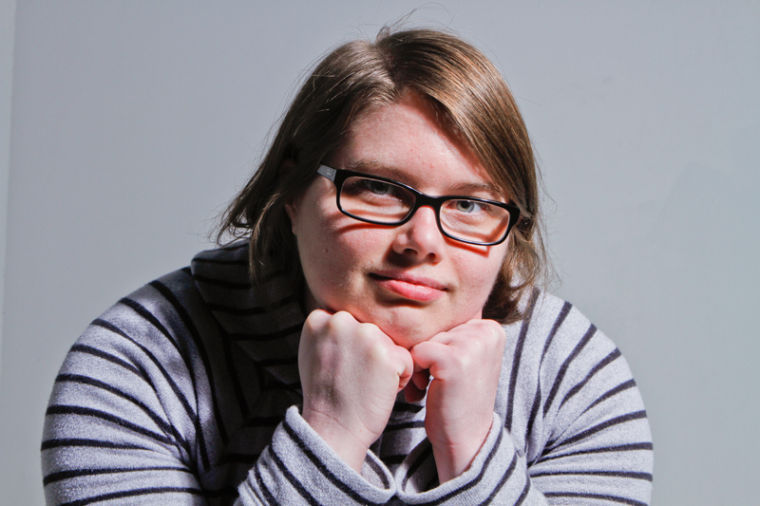Q is for Queerability: Student finds community in social media group
February 15, 2013
To some, the words ‘queer’ and ‘disabled’ might be considered insulting. For others, they are descriptors of their day-to-day lives that they happily embrace.
Kristen Guin, a 23-year-old junior from Birmingham, Ala., who is bisexual and has autism, is helping to create a community for other people like her through an increasingly popular Tumblr and Facebook page called Queerability.
Guin said she faced difficulties when she came out.
“There’s a horrible misconception that disabled people don’t have sexual desires,” Guin said. “When I came out to my dad, he said, ‘I think you’re just gender confused because of your autism.’ I just hope that Queerability will help to combat these stereotypes about disability and sexuality.”
Since then, Guin has struggled to find a place where she can belong.
“I’m a part of the LGBT community and the disabled community,” Guin said. “I didn’t feel like I belonged in either community, so that inspired me to create one for people like me.”
Guin, who is also the Kentucky chapter leader for the Autistic Self-Advocacy Network, said she wants to promote more visibility of the LGBT community and people with disabilities.
“I would watch ads promoting the LGBT community and never once see a disabled person,” Guin said.
Zach Pennington, a 21-year-old Lexington junior and good friend of Guin’s, supports what Queerability stands for.
“There’s a growing voice for LGBT youth, but those who are also disabled don’t have a very large presence in the media,” Pennington said. “This is an effort to give people who aren’t normally noticed by society a place to say, ‘Hey. We’re here. Let us be a part of society, too.’”
Guin also said that in the social justice community, it’s common for minority groups to join together like this.
Anna Nuckols, a 19-year-old sophomore from Fort Benning, Ga. and fellow member of the LGBT community, likes how Queerability is bringing these groups together.
“People have a tendency to see others’ identities based on one thing,” Nuckols said. “For example, they might see me, and only know me as a lesbian. If they saw a disabled person, they might only see them as disabled. I like how the site is tying in that intersectionality and showing what makes people who they are.”
Guin started the Queerability Facebook page exactly one month ago on January 15. Since that day, the page has gotten over 150 “likes.”
“I’ve gotten a lot of great, positive messages from people about it,” Guin said. “There hasn’t been a lot of negativity yet, although I’d braced myself for it.”
Guin is hopeful that Queerability will increase knowledge and understanding of LGBT and disability issues. She also hopes for it to one day become as popular as the It Gets Better and NOH8 campaigns.
Nuckols feels that anyone can take something away from Queerability, even if they’re not members of the LGBT or disabled communities.
“Anyone can check out this site and get a new insight,” Nuckols said. “People don’t look at others this way on a regular basis. Queerability is a good way to better each of these groups, and it’s very relevant right now.”
To find out more about Queerability, check out facebook.com/qability and queerability.tumblr.com.






















![Megan Inman of Tennessee cries after embracing Drag performer and transgender advocate Jasmine St. James at the 9th Annual WKU Housing and Residence Life Drag Show at Knicely Conference Center on April 4, 2024. “[The community] was so warm and welcoming when I came out, if it wasn’t for the queens I wouldn’t be here,” Inman said.](https://wkuherald.com/wp-content/uploads/2024/04/smith_von_drag_3-600x419.jpg)


